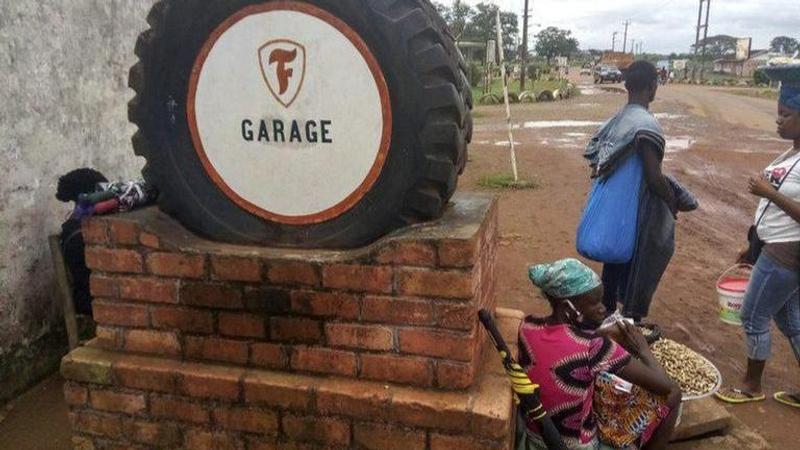Published 18:42 IST, August 22nd 2020
Future for Liberia's rubber farmers shaky amid economic woes
Christopher Reeves has farmed rubber for more than three decades in Liberia, selling his crop to the international tire-maker Firestone, which also operates the world’s largest rubber plantation here.

Christopher Reeves has farmed rubber for more than three decades in Liberia, selling his crop to the international tire-maker Firestone, which also operates the world’s largest rubber plantation here.
Now Reeves, 61, and thousands of others working in Liberia's once-thriving rubber industry have fallen victim to the global economic downturn caused by COVID-19.
Even before the pandemic, Firestone had imposed a moratorium on purchasing rubber from small-scale independent farmers like Reeves. What most thought would be a month turned into nearly six, with the company citing COVID-19 precautions and an oversupply of rubber. Now the company plans to lay off hundreds who work at its plantation site.
Without steady work in the rubber industry, some Liberians are turning to back-breaking labor instead — crushing rocks for use in construction.
“The rubber sector has gotten so bad that people are cutting down their rubber trees and planting (oil) palms,” Reeves lamented. “The farmers are suffering. I can’t lie to you.”
As a result of the moratorium, many independent farmers like Reeves have made almost nothing so far in 2020, he said.
Now the company, operating here since 1929, says it needs to fire hundreds of its employees. Liberian lawmakers tried to stop the move but were unsuccessful.
Firestone’s general manager in Liberia, Don Darden, told lawmakers back in July that the company’s decision was difficult, but “critically necessary at this time.” Some 374 people are to be let go, two years after more than 600 jobs were eliminated in Liberia, he said.
“The decision we are forced to take now is necessary to help preserve the very sustainability of the company’s operations here in Liberia,” he said.
Darden cited “unsustainable losses since 2012, the ongoing depressed prices in natural rubber and the impact of the global COVID-19 economic crisis.” He also noted the high overhead costs at the large farm where it grows rubber.
Some Liberian lawmakers were particularly insulted by the layoff plan because it initially was to take effect on Liberia’s Independence Day, on July 26. The country began as a settlement for freed slaves from the United States in 1822, but declared itself an independent nation 25 years later. The layoffs have not yet occurred as company officials do the necessary paperwork with the Liberian Ministry of Labor to reduce its workforce.
Moses Acarous Gray, a member of Liberia's legislature from the ruling Congress for Democratic Change party, says Firestone’s timing couldn’t be worse.
“Firestone’s action is exploitative and undermines the development agenda of the Republic of Liberia,” the lawmaker recently told private radio station OK FM. “And Firestone makes millions and billions of dollars from Liberia.”
In the meantime, independent farmers say there’s no one else to buy up all the rubber they had hoped could feed their families.
Richard Johnson Dennis, 55, who farms in the rural town of Gbartala said local rubber purchasers have been taking advantage of the situation. Knowing Firestone wasn’t buying, they offered very little because it was widely known the farmers were desperate.
Poor roads make it difficult for farmers to transport their rubber crop to sell elsewhere, said Wilhelmina G. Mulbah Siaway, president of the Rubber Planters Association of Liberia.
The situation improved slightly on July 15 when Firestone said that it would resume purchasing rubber from independent producers but the renewed purchases have not yet brought the profits many hoped. Firestone warned that it would only buy one vehicle load per farmer per day.
“This is due to unavoidable factors caused by the worldwide coronavirus pandemic,” it said.
Rubber producers say they don’t know what to do.
“If a farmer carries about three to four trucks of raw rubber to sell, they will complain it is too much. So where do we turn?” said one farmer, who spoke on condition of anonymity for fear of reprisals within the industry.
Many here wish that Liberia's rubber could be processed in the country and made into tires and other products, providing good-paying factory jobs. Instead, the raw rubber is shipped overseas. Firestone insists, though, that such a shift is not economically feasible.
Benjamin Juakormee runs a tire repair shop in central Liberia that is only 500 meters (yards) from a rubber farm, but the tires he fixes were made a continent away.
“It hurts me especially when I see tires marked Firestone,” the 30-year-old said. “I look at them and say ‘My God, this rubber comes from right here, and returns to us in finished products.’”
Updated 18:42 IST, August 22nd 2020




